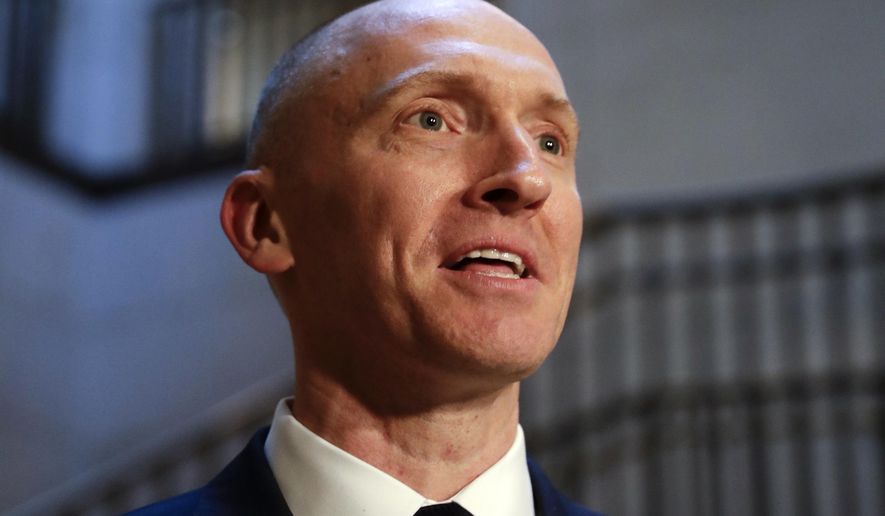The Justice Department concluded two of the Foreign Intelligence Surveillance Act warrants authorizing the surveillance of Carter Page were “not valid,” according to a court order declassified Thursday.
The department will also investigate the validity of the other two warrants for Mr. Page, the court order revealed.
Both disclosures came in a December filing with the Foreign Intelligence Surveillance Court declassified Thursday.
The department concluded two of the warrants were invalid because the FBI provided “insufficient predication to establish probable cause to believe that Page was acting as an agent of a foreign power.”
“The court understands the government to have concluded in view of the material misstatements and omissions that the court’s authorizations in (two applications) were not valid,” wrote James E. Boasberg, president judge of the FISC.
However, the department would not take a position on the two remaining warrants saying it needed more time to conduct a review. The department pledged to update the FISC when its review is complete.
Judge Boasberg set a Jan. 28 deadline for the Justice Department to provide information about the steps it will take to minimize the information gained from the Page surveillance.
Thursday’s disclosure drew strong reaction from Sen. Chuck Grassley, Iowa Republican, who called the revelations “extraordinary.”
“Time will tell if the [Justice Department] will continue working to fix its errors and restore trust that it won’t disregard Americans’ civil liberties,” he said in a statement. “It’s admission and cooperation with the FISC is a step in the right direction.”
The FISC has demanded that the FBI detail steps its taking to prevent flawed FISA applications in the future.
Rep. Doug Collins, Georgia Republican and a member of the president’s impeachment defense team, said the revelation “proves what Republicans have been saying for years: There was no legal basis for spying on Carter Page during the 2016 election.”
“Congress must investigate the origins of this surveillance abuse and reform FISA to protect law abiding citizens,” Mr. Collins said on Twitter.
Others said the announcement undermines the credibility of House Intelligence Committee Chairman Adam B. Schiff, the lead Democratic impeachment manager, who wrote in a January 2018 memo to Congress: “FBI and DOJ officials did not ’abuse’ the Foreign Surveillance Act (FISA) process, omit material information, or subvert this vital tool to spy on the Trump campaign.”
The Trump campaign’s rapid-response director, Andrew Clark, said on Twitter that Mr. Schiff “had access to the evidence that proved the FBI abused the FISA process to spy on the Trump campaign.”
“Oversight was his job,” Mr. Clark said. “Instead, he penned a crap memo that covered it all up to keep Russia-gate alive. How is this man still Intel Chair?”
Justice Department Inspector General Michael Horowitz last month uncovered at least 17 significant errors and omissions in the FBI’s application for a FISA warrant to surveil Mr. Page. Among the violations was the revelation that an FBI lawyer doctored evidence in the application for a fourth warrant.
The FISC has ordered the FBI and government to reform its procedures to apply for a FISA warrant. FBI Director Christopher Wray this month submitted a list of reforms, but the court blasted the changes as “insufficient.”
• Jeff Mordock can be reached at jmordock@washingtontimes.com.




Please read our comment policy before commenting.